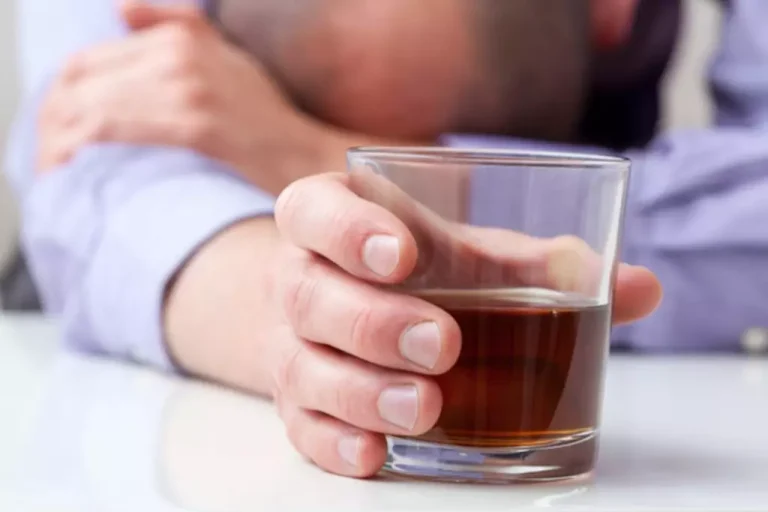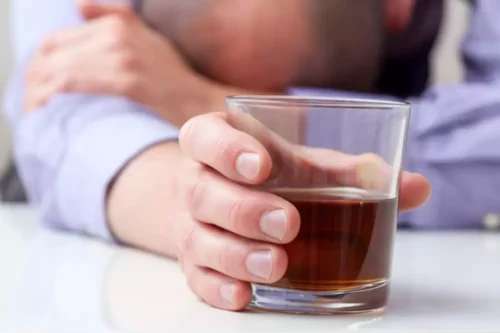BetterHelp can connect you to an addiction and mental health counselor. If this happens too often, damage to the body’s brain and tissues can what gets alcohol out of your system develop. The only way to get sober or clear alcohol from your system is to give your liver time to break down the alcohol. Eating high protein foods, such as tofu or cheese, before or while drinking can slow the absorption of alcohol. The liver breaks down most of the alcohol, though the substance also passes through the kidneys, urine, skin and lungs. Once the substance enters the capillaries surrounding the stomach and small intestines, it enters passageways that lead to the portal vein, which passes through the liver and branches out into the capillaries.
Does Lemon Juice Help You Metabolize Alcohol Faster?
Alcohol can be detected in your system even after your body has fully metabolized it. How long alcohol shows up on a test after your last drink depends on the type of test and how heavily you have been drinking. Each of the above drinks contains 0.6 ounces of pure ethanol, which counts as a single serving of alcohol. However, those are based on the average strength of each type of alcohol. To ensure you are drinking in moderation, check the strength or percentage of pure alcohol in your drink. This can be trickier to do if you are drinking at a bar or restaurant, but you can use the above as a guideline.
What role does exercise play in expediting alcohol elimination?
By integrating physical activities into your routine after consuming alcohol, you can actively support your body’s natural detoxification mechanisms and accelerate the elimination of alcohol residues. Staying hydrated is crucial in expediting the elimination of alcohol from your system. Alcohol dehydrates your body, leading to symptoms like headaches and fatigue. By drinking plenty of water, you can help flush out toxins and support your organs in processing alcohol metabolites more efficiently. Once alcohol enters your bloodstream after you drink, your body starts to break it down and metabolise a portion every hour.
How Your Body Metabolizes Alcohol
In a clinical case study reviewed in this issue, Trevejo-Nunez and colleagues report on systemic and organ-specific immune pathologies often seen in chronic drinkers. In such patients, alcohol impairs mucosal immunity in the gut and lower respiratory system. This impairment can lead to sepsis and pneumonia and also increases the incidence and extent of postoperative complications, including delay in wound closure.
Keep your consumption to a few drinks per week, and avoid excessive consumption. The blood alcohol concentration (BAC) is how much alcohol is in your blood and is the most precise way to measure intoxication. What equates to 1 drink depends on the size and type of alcoholic drink you have. You may be underestimating how much you drink because you (or your generous friend) aren’t using standard measurements. As a matter of fact, there are two toxins in alcohol the body has to work hard to eliminate. The form found in most alcoholic beverages is known as ethyl alcohol, which is produced during the fermentation process.
- These tests serve as a warning system because they are sensitive to small amounts of alcohol for up to three to five days after consumption.
- Stopping drinking and allowing time to pass is the only true way to sober up.
- You’ll have trouble with things like speech, balance, coordination, and reaction times.
- Alcohol can be detected in the hair for around 90 days after an alcoholic drink was consumed.
- In addition to the sober individuals, many people among the remaining two-thirds are also drinking less and experiencing fewer alcohol-related health problems after one year.
Medications Used in Treatment
The metabolism of alcohol has been studied in detail, but many factors determine how long alcohol shows up on a drug test and how long it takes to be eliminated from your body. Depending on the type of test used as well as your age, body mass, genetics, sex, and overall health, alcohol is detectable from 10 hours to 90 days. Remember that alcohol is absorbed the quickest in your small intestine. Having food in your stomach can slow down the absorption of alcohol while you’re drinking. In most cases, deliberately increasing your blood glucose levels isn’t a good idea. However, the toxins in alcohol actually lower the amount of glucose in your bloodstream, which can lead to hypoglycemia (low blood sugar).
- Age, weight, food intake during alcohol consumption, medications, liver health, and the time between drinks all contribute to how long alcohol remains in your body.
- If possible, allow yourself adequate time to get a good night’s sleep so your body can recover.
- Whether you’re looking to sober up after a social event or simply aiming to detoxify, the question of how to get alcohol out of your system is crucial.
- However, regular use of alcohol is not without risk, and the alcohol can remain in the system for quite a while, depending on several factors.
- Alcohol, also known as ethanol or ethyl alcohol, is the ingredient found in beer, wine, and spirits that causes drunkenness.
The Relationship Between Bipolar Disorder and Addiction
Your body flushes the alcohol out of your system steadily but slowly. As a result, if you drink a lot or very quickly, some unmetabolised alcohol will linger in your blood, leading to intoxication. It may be possible to detect it in the blood for several hours, and in the urine for several days.
What Happens to Your Body When You Drink Alcohol Regularly
- Factors like age, gender, weight, genetics, and overall health can affect how quickly the body metabolizes alcohol.
- However, more recent research warns against using alcohol as a strategy for improving heart health, says Andrews.
- In a clinical case study reviewed in this issue, Trevejo-Nunez and colleagues report on systemic and organ-specific immune pathologies often seen in chronic drinkers.
- That’s why many of us wonder if a month of avoiding drinking is enough to “reset” your liver back to normal.
Even though alcohol may not show up on a breathalyzer, it may show up on other tests after drinking. Alcohol can be detected in a urine test between 12 and 48 hours after your last drink through an ethyl glucuronide (EtG) drug test. Once swallowed, alcohol enters the digestive system, travels to the stomach and small intestine, and is absorbed into the bloodstream. Once in the blood, alcohol moves throughout the entire body and eventually ends up in the liver, where most alcohol metabolism occurs.
- Many people also turn to support groups like Alcoholics Anonymous (AA).
- Here’s how the long-term consequences of excessive drinking can gradually take a toll on your health.
- Incorporating regular exercise into your routine not only aids in flushing out alcohol but also improves overall well-being.
From clinking glasses for a toast to unwinding with friends after a long day, alcohol has played a central role in shaping traditions and celebrations for centuries. While it can foster connection and enhance social experiences, beneath the celebratory surface lie potential beneficial and harmful effects. Depending on how much and how often you drink, these effects can impact your health and quality of life.






